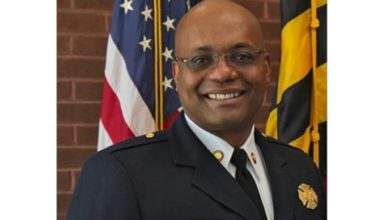Another view on DC shift change controversy. Brother of slain New York Times reporter David Rosenbaum points to studies saying current 24/72 & Chief Ellerbe's 12-hour shifts both aren't safe.
Read Marcus Rosenbaum's opinion
Previous coverage of Chief Ellerbe's plan here, here and here
Click here to follow STATter911.com on Facebook (hit "like")
Marcus Rosenbaum has written a column for The Washington Post about Chief Kenneth Ellerbe's proposal to do away with the current shift for firefighters of 24/72 and replace it with 12-hour shifts of three days, three nights and three off (3-3-3). Rosenbaum's brother David was a former New York Times reporter who was beaten on a Northwest Washington street six years ago. David Rosenbaum's treatment by the Metropolitan Police Department, the DC Fire & EMS Department and Howard University Hospital was found to be greatly flawed and highlighted problems with the way EMS was delivered in the Nation's Capital.
Following David Rosenbaum's death, his family dropped a lawsuit against the City in exchange for a task force to lead the way to major improvements for EMS. The task force called for "shorter shifts for all employees . . . to ensure the goal of having alert and awake employees who can provide competent patient care.”
Chief Ellerbe has cited the report in justifying both his shift change plan and the recent controversy over the department's logo.
Marcus Rosenbaum, pointing to studies done on performance for those who are sleep deprived, believes that 24-shifts are not safe when it comes to patient care. But Rosenbaum says the studies also show that Chief Ellerbe's plan is not the way to go either. Rosenbaum thinks both sides need to come together and approach this with open minds so they can develop a schedule that does not include extended work hours that can cause sleep deprivation.
Here are some excerpts from this latest opinion piece on the shift change issue:
Sleep deprivation leads to underperformance and serious mistakes. In fact, in 2008 the National Institute of Medicine recommended that doctors-in-training should not work more than 16 hours in a row, should not be awakened to treat patients and should not even drive home if they have worked longer than 16 hours. And a 2009 article on shift work in the journal Current Neurology and Neuroscience Reports concludes that firefighters’ performance “is likely to be significantly degraded” on shifts like those used in the District.
Setting aside whether it’s proper for anyone to be paid to sleep during work hours, people who have life-and-death jobs need adequate sleep, whether they are doctors or airline pilots or firefighters or EMTs. That’s impossible in a busy firehouse. “If you’re waking up every two hours,” says Charles Czeisler, director of the Division of Sleep Medicine at Harvard Medical School, “you might as well be up all night.”
Shorter shifts are the only way to ensure that our emergency workers get enough sleep. But this doesn’t mean that Chief Ellerbe’s 3-3-3 plan is the right way to do it. Indeed, Czeisler thinks it’s perfectly horrible. First, he says, no one should work six 12-hour days in a row. Ever. Twelve-hour shifts make people “chronically sleep-deprived”; six in a row is a disaster. (Ellerbe says that built-in, rotating extra days off would rarely require anyone to work six days in a row, but to avoid it they would have to forgo quite a bit of overtime pay.)
Second, Czeisler says, no one should have to work three day shifts followed by three night shifts. Instead, people should work days for an extended period, followed by nights for an extended period. “You don’t want to be jerked around from one shift to another,” he says. If you are, your biological clock can never get set, and your body is always out of sync; you’re working below your ability no matter what shift you’re on.
Do you want to sell a vehicle? Click HERE to find out how withSellFireTrucks.com.





